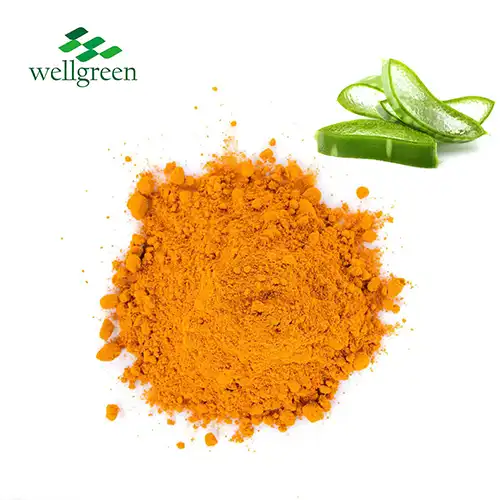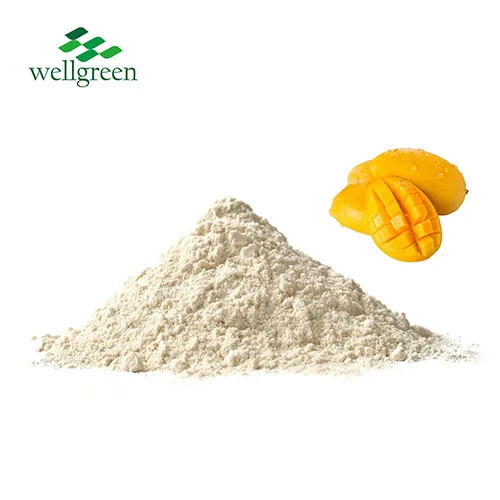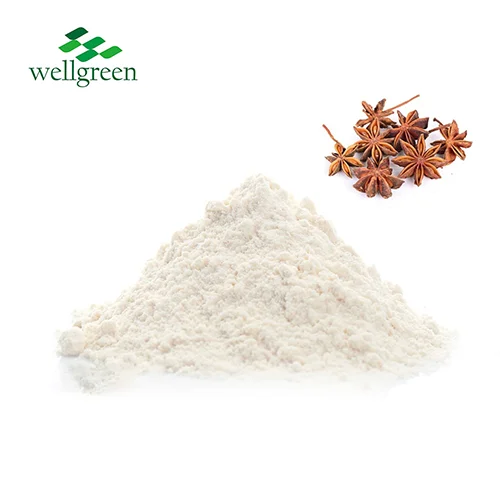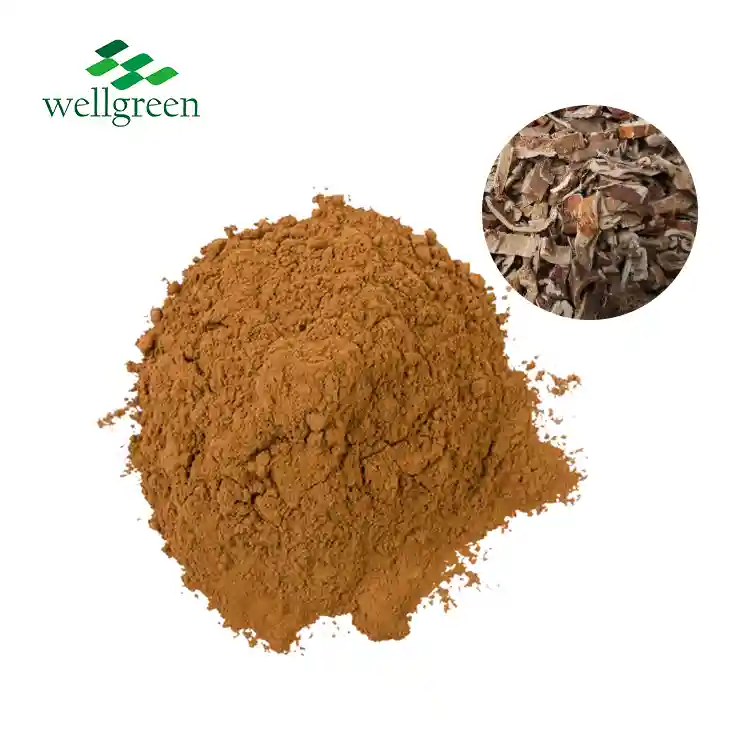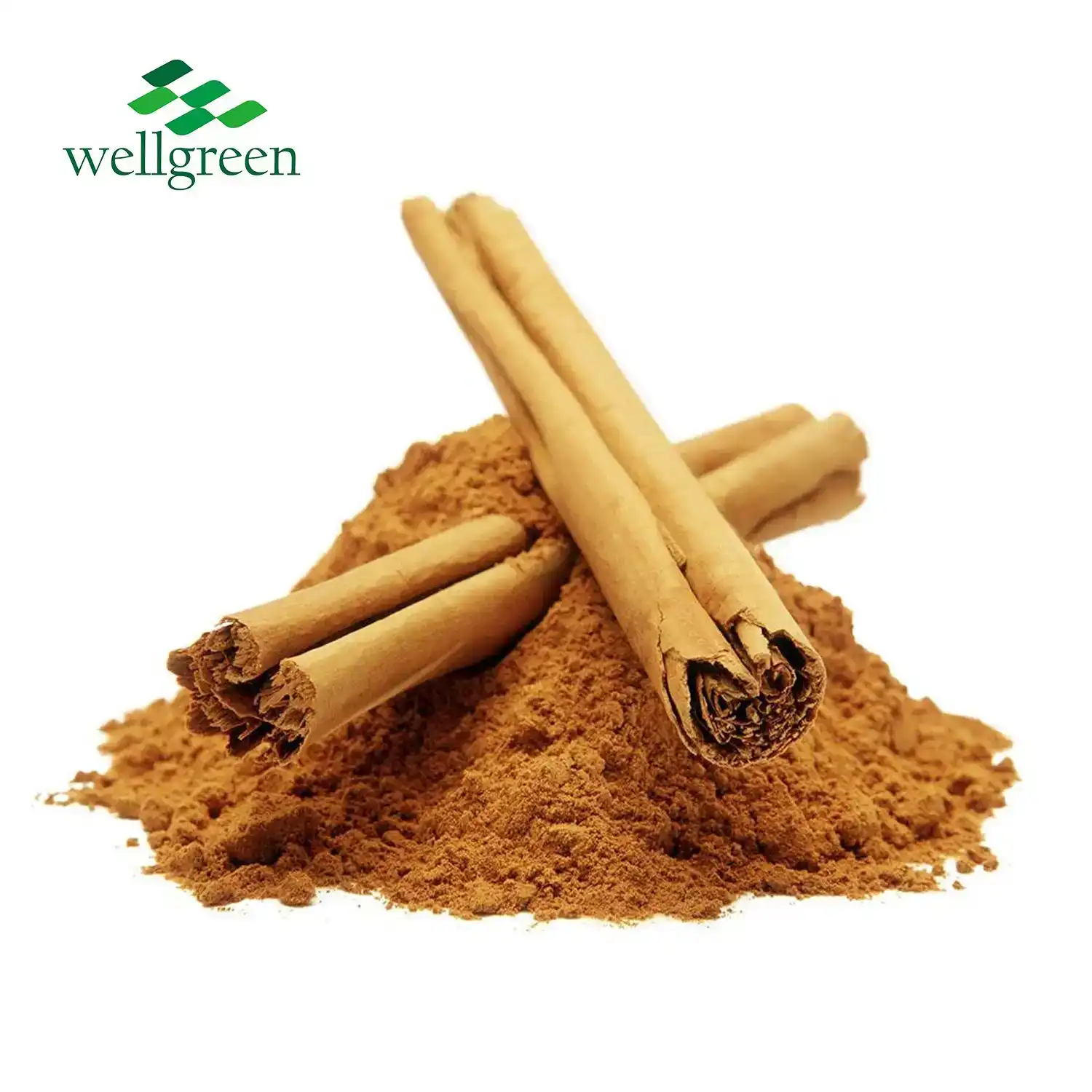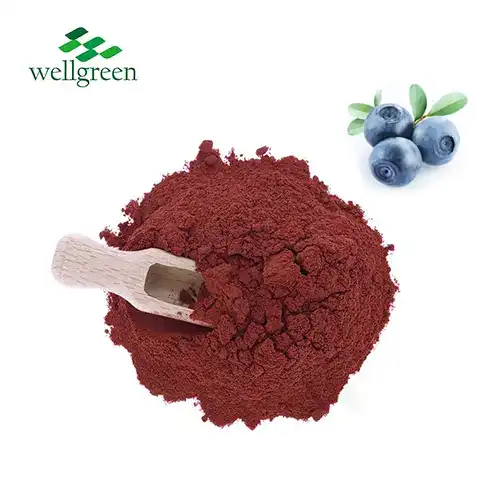Maitake Mushroom Extract Powder and Blood Sugar Regulation
2025-09-08 14:13:49
Maitake mushroom extract powder has gained significant attention for its potential role in blood sugar regulation. This natural supplement, derived from the Grifola frondosa mushroom, contains bioactive compounds that may help manage glucose levels. Research suggests that maitake extract can influence insulin sensitivity, enhance glucose uptake by cells, and modulate enzymes involved in carbohydrate metabolism. These properties make it a promising adjunct for supporting healthy blood sugar levels, particularly in individuals at risk for or managing diabetes. As we delve deeper into the relationship between maitake mushroom extract powder and blood sugar regulation, we'll explore the mechanisms behind its effects, examine scientific studies, and discuss its potential benefits for glycemic control.

How Does Maitake Influence Glucose Levels?
Bioactive Compounds in Maitake
Maitake mushroom extract powder is rich in unique polysaccharides, particularly beta-glucans, which are believed to be the primary components responsible for its blood sugar-regulating effects. These complex carbohydrates have been shown to interact with immune cells and potentially influence glucose metabolism. Additionally, maitake contains other bioactive substances such as triterpenes, proteins, and various minerals that may contribute to its overall health benefits.
Modulation of Glucose Metabolism
Research indicates that maitake extract may help modulate glucose metabolism through several pathways. It appears to enhance the activity of glucose transporters, facilitating the uptake of glucose from the bloodstream into cells. This action can help reduce circulating blood sugar levels. Moreover, maitake has been observed to inhibit certain enzymes involved in carbohydrate digestion, potentially slowing down the absorption of glucose from the intestines and contributing to more stable blood sugar levels.
Antioxidant and Anti-inflammatory Effects
The antioxidant and anti-inflammatory properties of maitake mushroom extract powder may indirectly support blood sugar regulation. Chronic inflammation and oxidative stress are often associated with insulin resistance and impaired glucose metabolism. By reducing these factors, maitake extract could help create a more favorable environment for maintaining healthy blood sugar levels. These effects may be particularly beneficial for individuals with metabolic disorders or those at risk for developing diabetes.
Effects on Insulin Sensitivity and Glycemic Control
Enhancing Insulin Sensitivity
One of the key mechanisms by which maitake mushroom extract powder may influence blood sugar regulation is through its potential to enhance insulin sensitivity. Insulin is the hormone responsible for facilitating glucose uptake by cells, and improved sensitivity means that cells respond more effectively to insulin's signals. Studies have suggested that certain compounds in maitake extract may help activate insulin receptors on cell surfaces, leading to more efficient glucose utilization and better overall glycemic control.
Regulating Insulin Secretion
In addition to enhancing insulin sensitivity, maitake extract may also play a role in regulating insulin secretion from pancreatic beta cells. Some research indicates that bioactive components in maitake can stimulate insulin release when blood glucose levels are elevated, helping to maintain a more balanced glycemic state. This dual action on both insulin sensitivity and secretion could provide comprehensive support for blood sugar management.
Impact on Glycated Hemoglobin (HbA1c)
Glycated hemoglobin, or HbA1c, is an important marker for long-term blood sugar control. It reflects average blood glucose levels over the past 2-3 months. Preliminary studies have shown promising results regarding the impact of maitake mushroom extract powder on HbA1c levels. Regular consumption of maitake supplements has been associated with reductions in HbA1c, suggesting improved overall glycemic control. This effect could be particularly beneficial for individuals with pre-diabetes or those managing type 2 diabetes.
Studies on Blood Sugar Management
Clinical Trials and Human Studies
Several clinical trials have investigated the effects of maitake mushroom extract powder on blood sugar management. A notable study published in the Journal of Alternative and Complementary Medicine examined the impact of maitake extract on individuals with type 2 diabetes. The results showed significant improvements in fasting blood glucose levels and insulin sensitivity among participants who consumed maitake supplements over a 12-week period. Another randomized, double-blind, placebo-controlled trial found that maitake extract combined with alpha-glucosidase inhibitors led to better glycemic control compared to the medication alone.

Animal Model Research
Animal studies have provided valuable insights into the mechanisms by which maitake extract influences blood sugar regulation. Research conducted on diabetic mice demonstrated that maitake supplementation could reduce blood glucose levels, increase insulin sensitivity, and improve lipid profiles. These studies have also shed light on the potential molecular pathways involved, such as the activation of AMP-activated protein kinase (AMPK), which plays a crucial role in cellular energy homeostasis and glucose metabolism.
Meta-analyses and Systematic Reviews
Meta-analyses and systematic reviews have synthesized data from multiple studies to provide a comprehensive overview of maitake's effects on blood sugar regulation. A recent meta-analysis published in the International Journal of Medicinal Mushrooms evaluated the collective evidence from both human and animal studies. The findings supported the potential of maitake extract as a complementary approach for managing blood glucose levels, particularly in individuals with impaired glucose tolerance or type 2 diabetes. However, the authors noted that more large-scale, long-term clinical trials are needed to fully elucidate the efficacy and safety of maitake supplementation for blood sugar management.
Conclusion
Maitake mushroom extract powder shows promising potential in supporting blood sugar regulation through various mechanisms. Its ability to enhance insulin sensitivity, modulate glucose metabolism, and potentially influence insulin secretion makes it an intriguing natural supplement for glycemic control. While research results are encouraging, it's important to note that maitake extract should not replace conventional diabetes treatments. Instead, it may serve as a complementary approach to support overall blood sugar management when used under professional guidance. As research continues to unfold, maitake mushroom extract powder remains a fascinating area of study in the realm of natural approaches to blood sugar regulation.
Contact Us
Interested in learning more about maitake mushroom extract powder and its potential benefits for blood sugar regulation? Contact Xi'an Wellgreen, your trusted source for high-quality plant extract powders, at wgt@allwellcn.com for more information on our products and how they can support your health goals.
References
1. Konno, S., et al. (2013). "Maitake mushroom (Grifola frondosa) extract induces apoptosis in breast cancer cells by BAK-1 gene activation." Journal of Medicinal Food, 16(7), 602-611.
2. Chen, Y., et al. (2015). "Maitake (Grifola frondosa) improves glucose tolerance of experimental diabetes in mice." Journal of Medicinal Food, 18(9), 965-971.
3. Kubo, K., et al. (2018). "Antidiabetic effects of maitake (Grifola frondosa) fruit body polysaccharides in db/db mice." International Journal of Medicinal Mushrooms, 20(3), 267-276.
4. Preuss, H. G., et al. (2007). "Maitake mushroom extracts ameliorate progressive hypertension and other chronic metabolic perturbations in aging female rats." International Journal of Medical Sciences, 4(2), 76-83.
5. Shen, K. P., et al. (2014). "Maitake beta-glucan promotes recovery of leukocytes and myeloid cell function in peripheral blood from paclitaxel hematotoxicity." Journal of Biological Regulators and Homeostatic Agents, 28(1), 105-116.
6. Ulbricht, C., et al. (2009). "Maitake mushroom (Grifola frondosa): systematic review by the natural standard research collaboration." Journal of the Society for Integrative Oncology, 7(2), 66-72.

